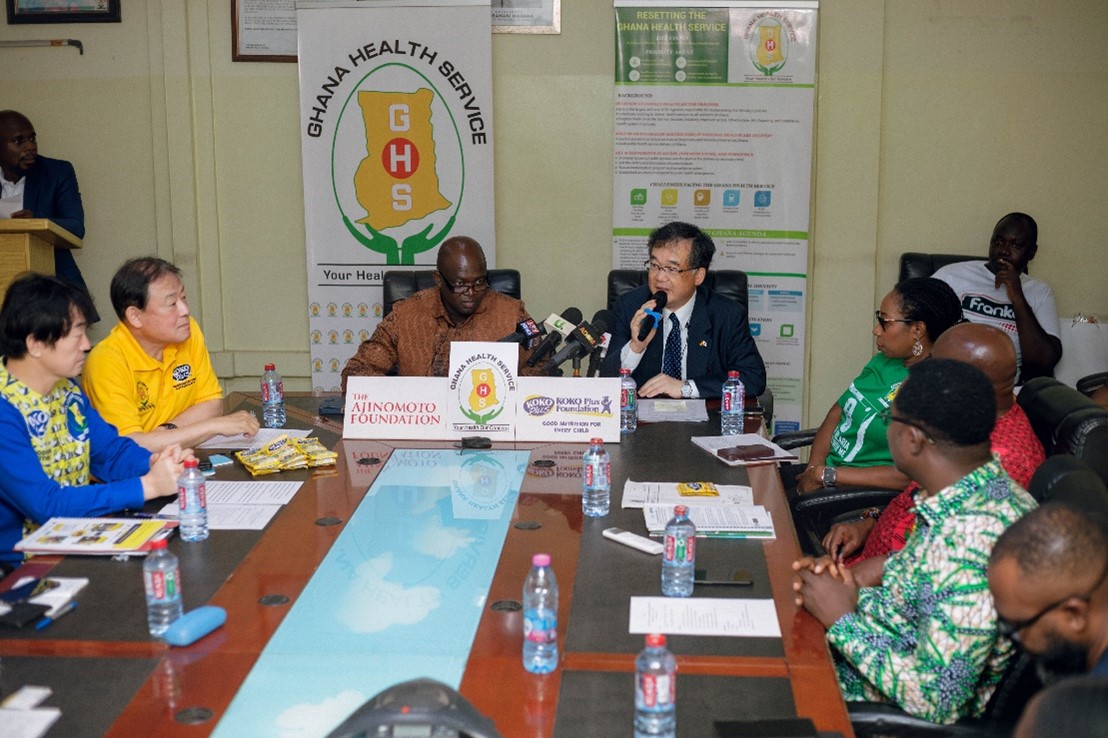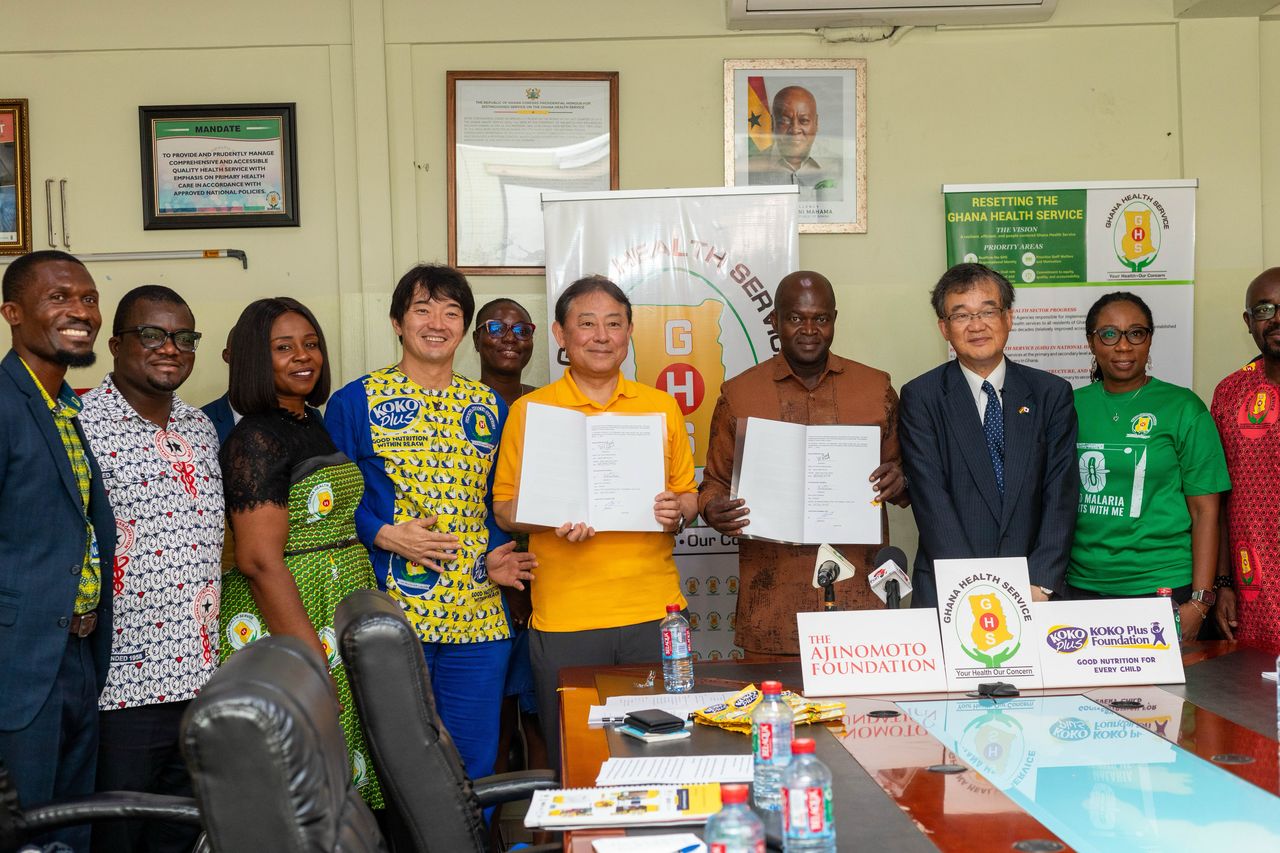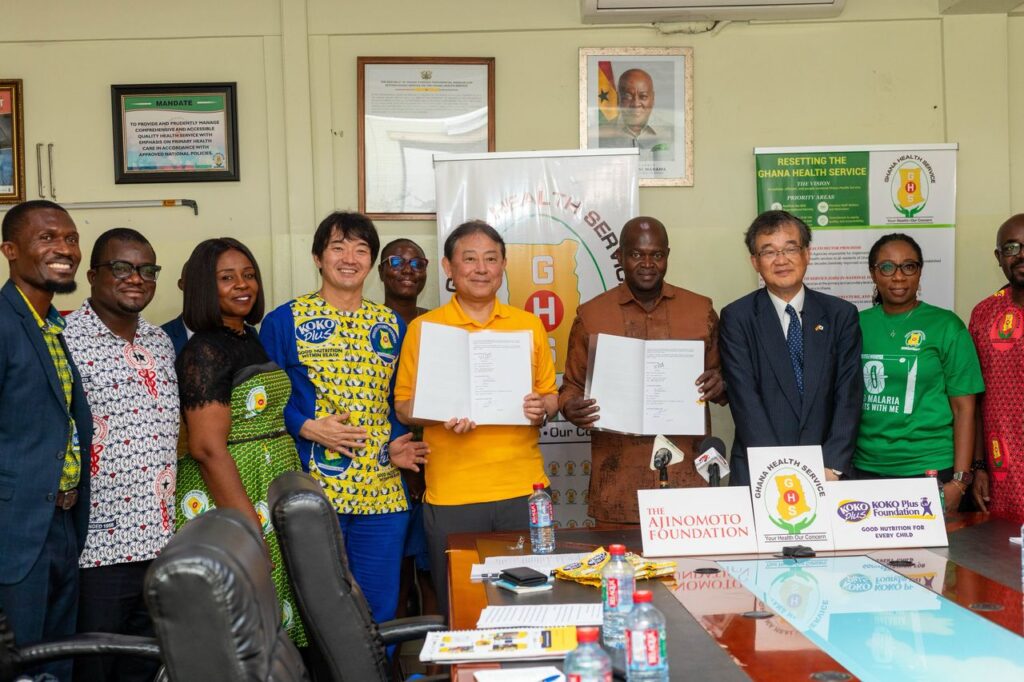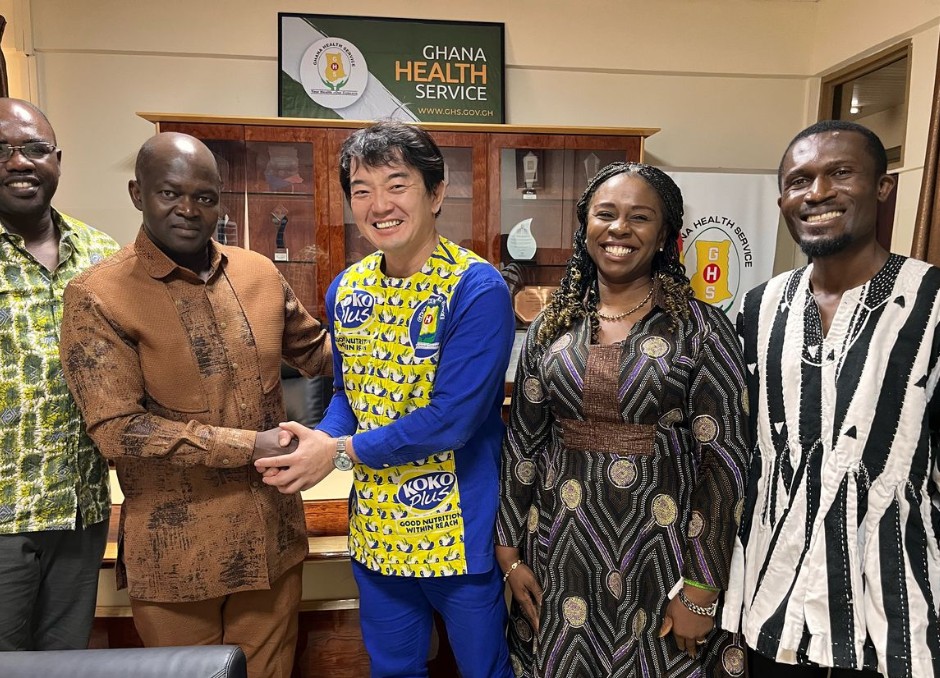In the spotlight: Forgotten Foods / Opportunity Crops and Nutrition in the First 1000 Days
7 – 11 October 2024. University of Cape Coast – North Campus, Cape Coast, Ghana. The African Nutrition Society (ANS) and the Ghana Academy of Nutrition and Dietetics (GAND) are organizing the 9th edition of the Africa Nutrition Conference (ANC2024 / ANEC IX).
Tuesday 8th October,2024. TRACK 1A: Food Systems and Nutrition in Africa
Securing sustainable good nutrition in the first 1000 days: The synergy of localization, social behaviour change communication and markets. Presenter: Kennedy Bomfeh PhD
Background: Nutrition in the First 1000 Days
The First 1,000 days – the time between conception to 24 months of life – has been considered a critical phase in a child’s development. Scientific evidence suggests that this period records the most rapid body development. For example, the brain records its highest growth rate and plasticity during this period, with tremendous implications for overall well-being, cognitive development and behavioral expression in later life. Nutrition plays a central role in the health outcomes realized at this point in life and beyond. Accordingly, nutrition in the First 1000 days is considered a unique window of opportunity during which gains in general and cognitive development can be made, or irreversibly lost.
One of the critical irreversible adverse health effects of malnutrition in the First 1000 days is stunting. It is a condition in which a child experiences growth faltering, becoming too short for their age compared with WHO child growth standards, with corresponding lower cognitive development. Stunting stems from chronic or recurrent undernutrition, both of which, with concerted efforts, are preventable.
In Ghana, considerable government, private sector and development partners’ efforts have been centered on addressing stunting. Through these endeavours, stunting has declined from 33% in 1993 to 18% in 2022, according to the latest Ghana Demographic and Health Survey report. Though a commendable achievement, the number remains above the national target of 14% by 2025. More work is therefore needed to drive the rates further down. For more than a decade, the Ghana Nutrition Improvement Project (GNIP) of The Ajinomoto Foundation (TAF) has been a significant contributor to that drive.
GNIP and the fight against malnutrition in Ghana

Started in 2009, GNIP is focused on preventing malnutrition among infants and young children. Itundertook product development of a protein and micronutrient nutrient powder (called KOKO Plus®) based on WHO guidelines for infant and young child nutrition (IYCN), conducted scientific efficacy studies that verified that KOKO Plus® is effective against stunting, and distribution model studies that evaluated delivery channel options for reaching the target population (children from 6 months old).
In the product development, to ensure sustainable production, due regard was given to the local food culture and local supply chains. This “localization” commitment emphasized the use of local raw materials for the manufacture of the product, the use of a local production facility and labour, and respect for the local food culture by making a sprinkle-type point-of-use supplement for traditional complementary foods. KOKO Plus® is a 15g powder supplement containing soybean flour, added lysine, and a mixture of vitamins and minerals. The product formulation has been published in the scientific literature. In 2018, the UN World Food Programme (WFP) registered KOKO Plus® as a “Nutritious Powder” in its food basket for Ghana.
Reaching the nutritionally vulnerable sustainably through social business
Ensuring the availability, access and consumption of nutrients-dense complementary foods is essential for securing good nutrition for every child. The approaches adopted to facilitate the availability of, and access to nutrients-dense food – especially those in the supplements category – directly impact the sustainability of both the efforts and the resulting gains. Whereas in food crises situations, donation is a required humanitarian approach for addressing malnutrition, in non-crises situations, other approaches that empower beneficiary communities to (eventually) own the solutions to malnutrition would be more sustainable and more supportive of robust domestic nutrition, health, and food systems, as well as livelihoods.
Consequently, GNIP adopts a market-based distribution of KOKO Plus® to offer availability and access by, respectively, placing the product in convenience stores close to health facilities and the settlements of caregivers, and keeping the price within the reach of the bottom of the pyramid (around 10 US cents per sachet). In doing this, GNIP adopts a social business approach, ensuring that the entire value chain is primarily managed by local people to address the malnutrition problem while strengthening local supply chains and improving livelihoods. This allows a direct contribution to the materialization of the pledge of the Sustainable Development Goals to leave no one behind.
Consumption for good nutrition is a knowledge-driven endeavour. For infants and young children, their nutrient intake heavily depends on the level of nutrition knowledge of caregivers, as this directly influences food selection, preparation and feeding practices. For that vulnerable group, breastfeeding and complementary feeding are critical nutrition pillars. These, done right, prevent the more than 30% of infant and young child deaths that are attributable to undernutrition. It is reported that poor breastfeeding practices results in more than 1 million child deaths, whiles an additional half a million deaths are linked to suboptimal complementary feeding. These highlight the need for caregiver education on what constitutes optimal feeding.
In 2018, TAF and its local (Ghana) operating agency – KOKO Plus Foundation (KPF) – signed a memorandum of cooperation with the Ghana Health Service (GHS) through which the nutrition education efforts of the latter are augmented with co-developed, easy-to-use and easy-to-understand job-aids and tools for knowledge and skills transfer on optimal complementary feeding. Those materials are used in training health workers and for educating caregivers. Through this public-private partnership (PPP), TAF/KPF and GHS have strengthened the social behaviour change communication (SBCC) in health service delivery, thereby contributing to the improvement of caregiver knowledge on IYCN. The SBCC activities involve stepwise one-on-one nutrition counselling as well as food and cooking demonstrations to show caregivers how to intentionally select and prepare nutritious foods for children. The use of KOKO Plus® is also recommended for improving the nutrient-density of meals. In 2019, more than 1,200 caregivers were trained in 20 cooking demonstrations organized in one of the beneficiary districts in the Central Region of Ghana. As at 2023, over 280 thousand caregivers had been reached nationwide.
The synergy of SBCC and markets for driving improvements in nutrition
Through the combination of SBCC and market-based distribution of KOKO Plus®, GNIP is facilitating the creation of a sustainable cycle for preventing infant and young child malnutrition by improving caregiver nutrition knowledge along with market-based distribution of KOKO Plus®. From 2019 to 2021, TAF/KPF, GHS and the World Food Programme (WFP) tested the synergy of SBCC and market-based nutrition intervention with KOKO Plus® in the Ashanti and Northern Regions of Ghana. The SBCC component involved education on optimal infant and young child feeding (IYCF) practices, whiles the market component entailed making KOKO Plus® available on the market for purchase. It was found that counselling on IYCF through SBCC resulted in the following:
1. caregivers recorded more knowledge of optimal IYCF practices that an baseline (see Fig. 1);
2. caregivers recorded a higher purchase of KOKO Plus® (81.3% of caregivers purchased post-intervention vs. 60% at baseline);
3. children of caregivers who received IYCF were 15% less likely to have anaemia at follow-up.
These suggest that the SBCC improved the understanding of caregivers on optimal IYCF, leading to a modified practice of intentionally selecting nutritious foods for their ward.
Furthermore, their decision to purchase KOKO Plus® for their wards highlights their willingness to spend on good nutrition after receiving nutrition education. Fig. 1 summarizes the link between nutrition knowledge and purchase of KOKO Plus®. The data suggests that IYCF knowledge increased after the SBCC, which subsequently led to an increase in the purchase of KOKO Plus®. Additionally, intentional purchase of KOKO Plus® may be considered an indicator of intentional selection of nutritious foods in general, which in turn may have contributed to better nutrition and health outcomes (e.g., the observed lower incidence of anaemia). Thus, the increase in the purchase of KOKO Plus® after the nutrition education may be considered a proxy for the link between nutrition education and willingness to spend on nutritious foods.

Scaling up the synergy, widening the social impact
Building on the results of the 2019 – 2021 collaborative project, TAF/KPF, GHS and WFP with the support of the Japanese government, entered a second phase of the project in October 2021 to expand the SBCC and market-based nutrition intervention to 90 districts, targeting a population of 252,000 caregivers. The goal is to improve IYCF knowledge among caregivers in urban and periurban areas through SBCC, emphasizing dietary diversity and recommending KOKO Plus® to prevent malnutrition, particularly stunting and micronutrient deficiencies in children. Through the project, it is expected that caregivers will be empowered to intentionally select locally available nutritious foods for their wards and use KOKO Plus® to improve the nutrient-density of complementary foods. These, ultimately, are envisaged to improve the local nutrition, health and livelihoods situation.
Conclusion
Through the Ghana Nutrition Improvement Project (GNIP), The Ajinomoto Foundation (TAF) in its public-private partnership with the Ghana Health Service, has shown that a combination of social behavior change communication (SBCC) and market-based delivery of nutritious food holds promise for sustainable nutrition improvement, as it fosters a change in mindset regarding what constitutes good nutrition and willful purchase of nutritious foods. Furthermore, the reliance of this approach on localization – realized in the use of local raw materials, food production and distribution systems, and respect for the local food culture – strengthens its support for local livelihoods, thus reinforcing its sustainability.

Kennedy Bomfeh (PhD) is the Director for Supply Chain and Academic Affairs at KOKO Plus Foundation and has been on the Ghana Nutrition Improvement Project since 2011.

Esi Foriwa Amoaful is a nutritionist, public health specialist and Maternal, Child Health and Nutrition advocate. She is a retired Director of Nutrition for the Ghana Health Service.


























